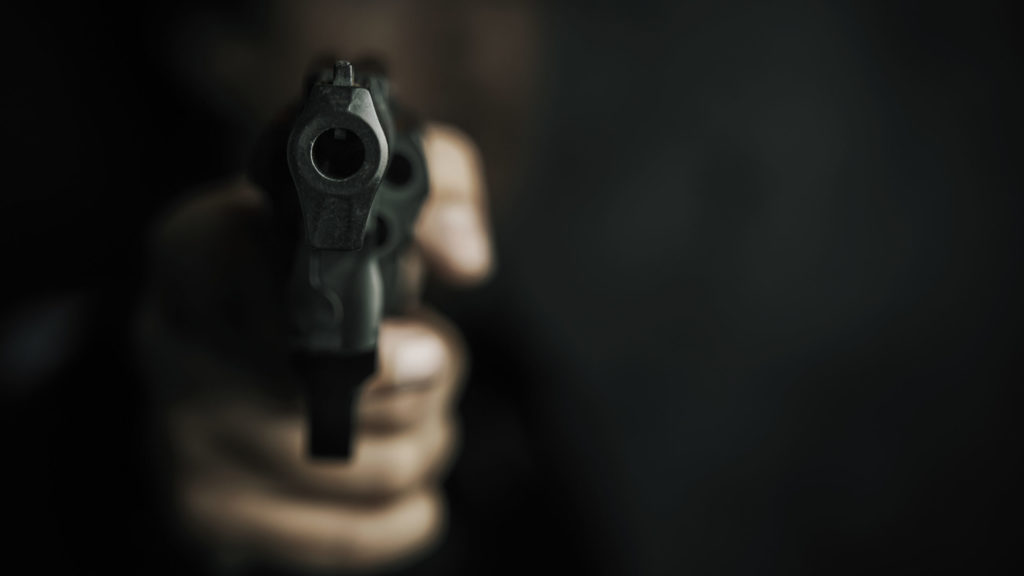Imagine yourself in your house. A neighbor is banging on the front door and yelling. Or there are noises outside, a car window being smashed. What do you reach for?
Susan Lorincz reached for a gun. Embroiled in a dispute with her neighbor, Lorincz, standing behind a locked and bolted metal door, fired a bullet through the door, killing Ajika Owens, single mother of four.
Jason Lewis reached for a gun and went out at 3 a.m. to investigate when he heard noises on his street. Three teens were breaking into cars. When he yelled at the kids, he thought one of them was running toward him. He fired, killing 13-year-old Karon Desean Blake.
Lorincz is white. Lewis is black. Both victims were black. Lorincz lives in Florida, Lewis in Washington, D.C. Both were convicted in August of manslaughter and face years in prison.
The two stories are exhibits A and B in the madness that has overtaken a country in which there are more guns than people, a country which is unique among advanced countries for the number of deaths caused by guns, a country where lethal violence is considered option No.1 for self-protection of life and property.
Lorincz was 59 years old and lived alone. She most likely bought her .380 handgun because it is marketed as being good for self-defense with little recoil when fired. She didn’t like Owens’ children playing near her house and often yelled at them. On that fateful day, she had thrown roller skates and an umbrella at the children, who told their mother. Owens was angry, and went over and banged on Lorincz’s door while yelling at her. Lorincz said she was scared, and blindly fired a shot through the metal door, striking Owens and killing her.
Lewis, 41, was a parks and rec employee in Washington, D.C. His work involved helping at-risk youth. He has four kids. He lives in a neighborhood sociologists might call transitioning. D.C. has tough gun control, but Lewis was licensed to have a gun. When he heard the noises outside in the middle of the night, he got up to see what was going on. Lewis brought a gun with him. He saw what turned out to be a stolen Kia with two kids in it and a third kid, Karon Blake, breaking into a car. He yelled. Police think Blake was running after the Kia, but Lewis said he thought he was running toward him, and he fired multiple shots. A porch camera caught Blake’s final words: “I’m sorry, I’m sorry, I’m sorry. I’m just a kid.” When police arrived, Lewis was trying to resuscitate the youth.
If guns weren’t involved, if fear wasn’t a factor, if the nightmare threat scripts that run in our minds hadn’t kicked in, Owens and Blake would be alive today. Instead of a gun, Lewis might have picked up a phone. Instead of a gun, Lorincz might have called 911.
The truth is that we’ve become the monsters in our own nightmares. We buy guns for security, yet feel ever more insecure. We buy guns because we feel threatened, yet we become the threats, not just to others, but to ourselves. More than half of all gun deaths in the United States are suicides. Guns are highly efficient at one thing: projecting a bullet into a neighbor, into a kid, into one’s own head.
No one feels secure: not us, not our neighbors, not our police. So, we buy still more guns. We play out Hollywood tropes, cop show scenarios in our minds. And every now and then, innocents die.
Lorincz and Lewis never planned to kill. They never planned to spend a decade or two in prison for taking someone else’s life. But the gun became the crutch, the protection that they leaned on instead of calling the police or relying on one’s neighbors. The gun is one more symbol of our isolation masquerading as self-reliance.
Stories like the murders of Owens and Blake rarely get national press. Mass shootings do, but they are only 1% of more than 42,000 gun deaths a year. Sixty percent are suicides, while 37% are homicides. All of them are life-destroying.
While the rest of the world looks on our slaughter with disbelief, U.S. bishops regularly call for “reasonable gun control measures.” They issue weary press releases whenever the next massacre happens, making the same points about background checks and red-flag laws, but knowing they will be ignored.
Insanity is doing the same thing over and over and expecting different results. Maybe one of the life issues we can be discussing as a Church is the morality of gun ownership. When does it become a near occasion of sin? When do we end the nightmare we are living in?

